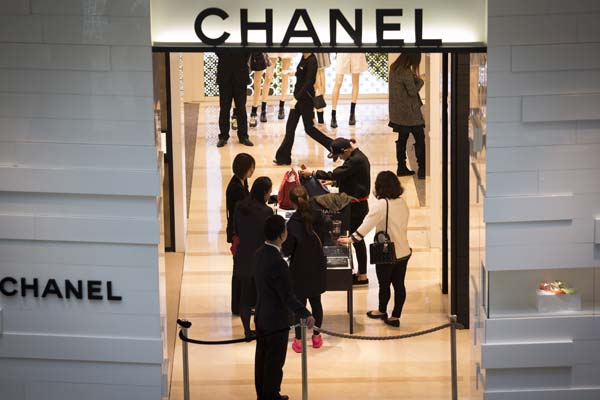Experts: Minimal risk in launching an online business
Updated: 2015-06-27 00:13
By Yang Yang(China Daily USA)
|
||||||||
 |
|
French luxury brand Chanel has opened stores in China, but smaller firms may find testing the water with a Web-based store safer. [Provided to China Daily] |
US small and medium-sized enterprises face considerably less risk entering the Chinese market through e-commerce than opening a brick-and-mortar store, according to industry experts.
Yingke Law Firm assists Chinese investors with deals in the United States, Israel and Britain, and has also spent years helping overseas capital to enter China.
Yang Lin, the firm's director of international business, said few medium-sized US enterprises are entering China in the traditional way, which involves investing heavily in preparations: Renting offices, purchasing office appliances, paying personnel, and marketing and branding.
For these companies, "whether you succeed depends on your business and management levels, and the market", she said. "For any enterprise that sets up a physical branch overseas, the risks are always huge."
But e-commerce is different. Rather than having to think about the cost of land, materials and labor, foreign investors who enter the Chinese market through online shopping can simply focus on the spending power of an ever-growing middle class.
"The middle-class lifestyle requires good-quality products, which means there are huge business opportunities for good-quality foreign brands that Chinese shoppers may never have heard of before,"Yang said.
Online marketplaces such as Taobao and JD.com provide international brands with smooth distribution channels, and enable consumers to quickly familiarize themselves with them, creating the potential for rapid expansion, she said. The costs are far lower than opening a physical store, as buyers can browse and buy online, while sellers can take orders and dispatch goods from the other side of the world. And if there are duties, they are usually paid by the customer. There is almost no risk, Yang said, as enterprises do not need to invest much to explore the market.
Export Now in the US has helped more than 50 overseas businesses enter the Chinese market via e-commerce in the past five years. According to Alibaba, which owns business-to- customer sites Taobao and Tmall, the company is a leading operator of online stores for foreign brands.
Frank Lavin, its CEO, said the rise of online shopping and the rise of the Chinese consumer is "perhaps the two most powerful business trends in the world today". There were two reasons why Export Now chose e-commerce as the best way for US brands to enter the China market: "First, it's the most cost-effective channel. Second, e-commerce allows for real-time feedback and adaptation, so a merchant can quickly adjust products."
In August 2012, Lavin opened Meilike, an online shop on Tmall that was intended to pave the road for US SMEs. The store, which sold US brands such as Osprey backpacks and Yummi Bears vitamins, eventually closed down. Since then, Export Now has focused on running flagship stores on Tmall for brands, such as the NFL and the Guitar Center.
"The online department store model is not always the best solution for a company,"he said. "In our view, strong brands do better with a flagship online store, as it allows them to present directly to the consumer.
"It's no surprise that leading brands from Samsung to Nike have Tmall stores."
yangyang@chinadaily.com.cn
Most Viewed
Editor's Picks

|

|

|

|

|

|
Today's Top News
China opposes US defense bill
No rest until sweeping victory against drugs, President Xi says
More people around world like China, survey finds
Victims of Charleston massacre mourned
US police fatally shoot unarmed black man in domestic dispute
Pundits cheer China-US talks
US Supreme Court upholds key Obamacare insurance subsidies
Productive talks praised
US Weekly

|

|













